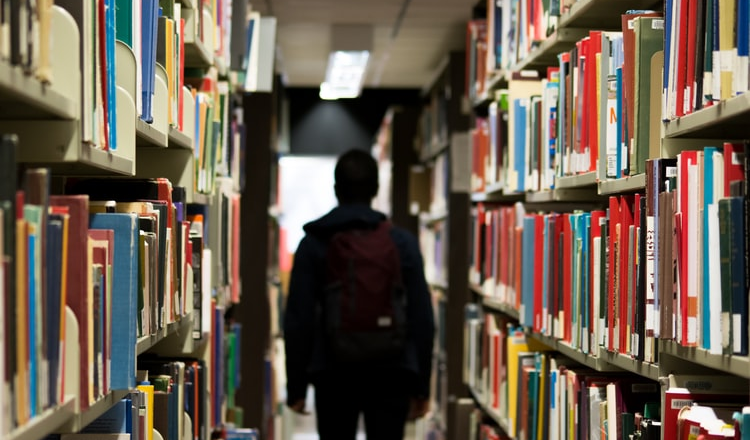
On the 16th of March, I joined 150 protestors on the lawns of Parliament House as part of The No More Poverty #80 a day campaign. We were a motley crew from GetUp, the Australian Unemployed Workers Union, the CFMEU, the National Union of Students, Vinnies, a local Uniting Church and random others. I was disappointed, but not surprised, that we were such a small contingent. The day before, 10,000 protestors had filled the same space as part of Women’s March 4 Justice. I am pleased that there were so many protestors that day. It was as it should be. Yet why I wondered, did so few actively support this cause.
My particular interest over the last few years has been student poverty. I was hoping that the protest would help pressure the Government to increase student payments, Youth Allowance, Austudy and Abstudy, to above the poverty line. At least 15 per cent of domestic full-time students report that “I regularly go without food or necessities because I cannot afford them,” according to Universities Australia national studies in 2006, 2012 and 2017. In my own national study of social work students, this figure doubled to over 30 per cent.
Article 25 of The Universal Declaration of Human Rights states in part:
“Everyone has a right to a standard of living adequate for the health and well-being of himself and of his family, including food, clothing, housing and medical care…”
Yet 15 per cent of Australian tertiary students are regularly having this right trampled. Submissions to the Senate Inquiry into the Adequacy of Newstart and Related Payments in 2019 revealed students regularly go without food, become homeless, lack funds for clothing and transport, and are even forgoing necessary medications due to insufficient finances.
This ongoing student poverty, in turn, affects the right to education (article 26). Among the full-time social work students that I studied, 59 per cent did not have enough money for all recommended texts or educational resources, 48 per cent were overtired from long working hours of paid employment, 39 per cent needed to skip classes to attend a paid job, and 23 per cent had to defer a course or reduce study load in order to work.
If you are surprised or appalled at this data, remember that this information has been known to senior university administrators and academics for years. They know poverty is impacting the lives and studies of at least 15 per cent of their students. Yet they do not address the problem in any consistent way. When I talk to administrators, they stress the scholarships that they offer. This is a 1950s solution to a 21st-century problem. It is a replay of the earlier idea of the deserving poor. It is not a rights approach. It is a neoliberal strategy that helps the few while allowing the majority to fail.
Other administrators point to the Higher Education Participation and Partnerships Program (HEPPP). HEPPP provides funding to universities to implement strategies to improve access to undergraduate courses for people from what they describe as low socio-economic status backgrounds. HEPPP is a fizzler. Its own evaluation in 2017 showed that students from low socio-economic backgrounds continued to be significantly under-represented at university. HEPPP is a smokescreen program. It cannot hope to succeed while students in need of support are paid well below the poverty line or in many cases, not at all.
When the covid supplement was first introduced many of the problems that I have outlined disappeared. At the end of March, those extra payments ended, and the Government replaced it with a minuscule increase.
At the demonstration in support of No More Poverty #80 a day I spoke to an academic who is well known for his work advocating for refugees. We looked around and could see no other academics, though of course there may have been one or two. There should have been hundreds, considering the effects of poverty on both the lives and study success of their students.
Yet poverty is strangely invisible or unimportant to most academics. An easy way to make the reality of poverty more visible is to include a question such as “Has insufficient funds affected your ability to successfully engage with this subject” in the periodic feedback questionnaires that are a feature of most courses. A space left open for commentary from students would provide a wealth of important information for teaching staff and administrators. This data would form an excellent basis for advocating with Government for better financial support for students. It was a feature of the two latest Senate inquiries into increasing incomes support payments, including student payments, that there were so few submissions from academics.
At the demonstration, GetUp put out 1400 empty chairs to represent people on JobSeeker who do not have a voice. Academics do have a privileged voice and it is time for them to speak out. The demand is simple, increase student payments to above the poverty line and ensure no student is living in poverty.


